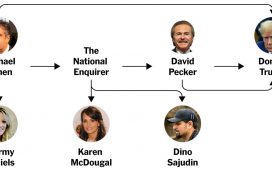The Morrison government has demanded that China rule out taking “discriminatory actions” against Australian cotton producers as the industry raised fears of becoming the next target in widening trade tensions.
With China the largest export market for Australia cotton, and with the trade worth about $800m annually, the government warned that curbs on producers’ ability to compete on a level playing field “could constitute a potential breach of China’s international undertakings”.
Labor raised concerns that a growing list of Australian industries had experienced unexpected difficulties accessing the Chinese market this year, “putting at risk billions of dollars in trade and thousands of Australian jobs”.
China’s National Development Reform Commission has started discouraging the country’s spinning mills from using Australian cotton, according to a statement issued by two Australian cotton industry groups on Friday.
Cotton Australia and the Australian Cotton Shippers Association said they were disappointed to learn of the changes, “particularly after we have enjoyed such a mutually beneficial relationship with the country over many years”.
“Our industry’s relationship with China is of importance to us and is a relationship we have long valued and respected,” the groups said.
“The Australian cotton industry will continue having meaningful conversations with stakeholders to fully understand this situation, and we will continue working with the Australian government to respectfully and meaningfully engage with China to find a resolution.”
Guardian Australia understands the instructions to importers in China about not buying Australian cotton have been issued in recent weeks but may have taken the form of verbal directives.
The Labor leader, Anthony Albanese, said the government had failed to manage the relationship with China and implied Australia had become too dependent on a single export market.
“You have a trade minister who can’t pick up the phone to their counterpart in Beijing,” Albanese told reporters in Sydney.
“I can’t remember a worse time of relationships, at the same time as the government’s presided over circumstances whereby 48% of our exports go to one destination, China.”
China has taken a range of actions against Australian exporters this year, including imposing prohibitive tariffs on barley, suspending imports from five red meat processing plants and launching two trade investigations into wine.
Australian coal has also reportedly become a target of Chinese authorities, prompting the Morrison government to seek assurances from Beijing this week.
The agriculture minister, David Littleproud, said he and the trade minister, Simon Birmingham, were continuing to seek dialogue with their Chinese counterparts, because that was the best way to resolve differences or misunderstandings. To date their requests have been rebuffed.
Littleproud said the government was “trying to get an appreciation whether there has been a direction given to millers not to take Australian cotton” because that would not be in the spirit of World Trade Organisation rules.
“It’s important not to jump the gun, but I think it’s important that we do get this clarification, considering the intelligence that’s coming back through the industry to us about them being singled out by China,” Littleproud told Sky News.
China had a “first come, first serve” annual quota of about 890,000 tonnes of imported cotton, which Australia and other nations traditionally competed to supply, he said.
“We’re not asking for special treatment one way or another. We’re just saying, give us a level playing field,” Littleproud said.
Earlier, Littleproud and Birmingham said China “should rule out any use of discriminatory actions against Australian cotton producers”.
“Impeding the ability of producers to compete on a level playing field could constitute a potential breach of China’s international undertakings, which would be taken very seriously by Australia.”
Comment has been sought from the Chinese embassy in Canberra.
Industry representatives put on a brave face about the prospect of selling to other international markets, even though China accounted for about two-thirds of Australian cotton exports.
Adam Kay, the chief executive of Cotton Australia, named Bangladesh, Vietnam, Indonesia and Thailand as markets for potential growth.
“I’m confident that Australian cotton shippers will find a home for all the crop,” he told ABC.
“And if it means they have to reduce their price slightly, they may have to do that.”
The Australian government, which copped flak from China for taking an early and forthright position in support of an independent international inquiry into Covid-19, has previously insisted it would not be deterred by economic pressure from standing up for its values.
But it has faced calls to seek a “reset” or “circuit breaker” in the relationship.
On Thursday, Sir Angus Houston, the former Australian defence chief, declared that China was Australia’s partner, not an enemy, and he accused some politicians of engaging in “loose talk” that had helped drive the relationship between Canberra and Beijing to “a very low point”.
“We need to take a hard look at our relationship with China, I think we need a reset, we need a circuit breaker, because, really, if we’re going to come out of this recession that we have at the moment because of Covid-19, we need China,” Houston said in a Lowy Institute event.






